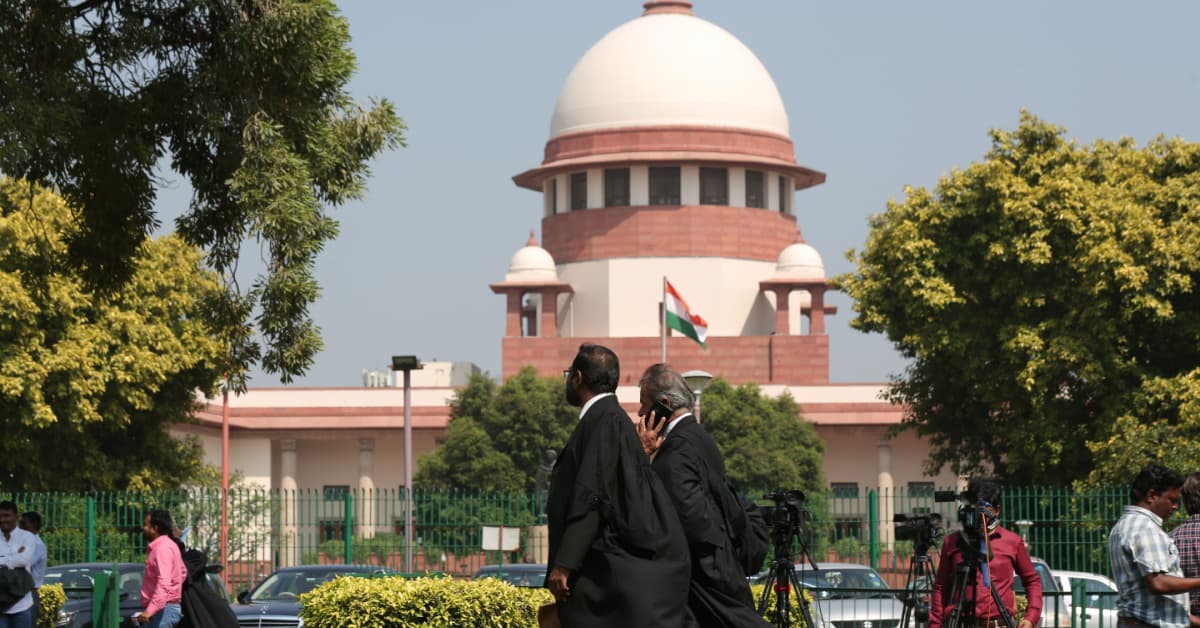The Supreme Court rejected a PIL that sought the establishment of an autonomous body to regulate content on over-the-top platforms
The petition argued that while the CBFC monitors films, no such mechanism exists for digital platforms.
The SC said that such regulatory decisions should be addressed through proper policy channels
The Supreme Court has rejected a public interest litigation (PIL) that sought the establishment of an autonomous body to regulate content on over-the-top (OTT) platforms.
A bench led by Chief Justice D.Y. Chandrachud, along with Justices J.B. Pardiwala and Manoj Misra, ruled that the matter falls within the executive’s policy-making domain and requires consultation with various stakeholders.
The PIL, filed by lawyer Shashank Shekhar Jha, highlighted concerns over unregulated content on OTT platforms, citing examples like Netflix’s “IC 814: The Kandahar Hijack”.
The petition argued that while the Central Board of Film Certification (CBFC) monitors films, no such mechanism exists for digital platforms, leading to potential misuse of freedom of expression.
Dismissing the PIL, the court reaffirmed that such regulatory decisions should be addressed through proper policy channels rather than judicial intervention.
“… These are purely matters of policy. How to regulate the internet, how to regulate the OTT platforms—this is all not something we can do in our jurisdiction of Article 32. This requires stakeholder consultation and multi-stakeholder dialogue. The government has to weigh the pros and cons…” the bench said.
Earlier this year, industry body Indian Broadcasting and Digital Foundation (IBDF) urged the Ministry of Information and Broadcasting (MIB) to remove OTT platforms from the scope of regulation of the contentious Broadcasting Services (Regulation) Bill 2023 introduced in November last year.
The industry body of TV broadcasters counts Star, Viacom18 and Times Television Network among its members.
It is pertinent to note that in November last year, the MIB floated the draft Broadcasting Services (Regulation) Bill, 2023 to replace the existing Cable Television Networks (Regulation) Act, in which it also included OTT platforms like Netflix and Disney Hotstar under regulation.
In the past as well, demands have been raised from various quarters about monitoring OTT platforms or stopping them from streaming “obscene” content. Last year, a parliamentary panel asked executives of OTT platforms like Netflix, Amazon Prime, and Disney + Hotstar to refrain from showing obscenities on their platforms and respect the country’s cultural sensitivities
Earlier this year, Netflix found itself under fire over “IC 814: The Kandahar Hijack”.
As per reports, the Indian subscription video on demand (SVOD) market in India is projected to grow at a compounded annual growth rate (CAGR) of 11.1% to become a $2.77 Bn opportunity by 2027.
Disclaimer
We strive to uphold the highest ethical standards in all of our reporting and coverage. We StartupNews.fyi want to be transparent with our readers about any potential conflicts of interest that may arise in our work. It’s possible that some of the investors we feature may have connections to other businesses, including competitors or companies we write about. However, we want to assure our readers that this will not have any impact on the integrity or impartiality of our reporting. We are committed to delivering accurate, unbiased news and information to our audience, and we will continue to uphold our ethics and principles in all of our work. Thank you for your trust and support.



![[CITYPNG.COM]White Google Play PlayStore Logo – 1500×1500](https://startupnews.fyi/wp-content/uploads/2025/08/CITYPNG.COMWhite-Google-Play-PlayStore-Logo-1500x1500-1-630x630.png)